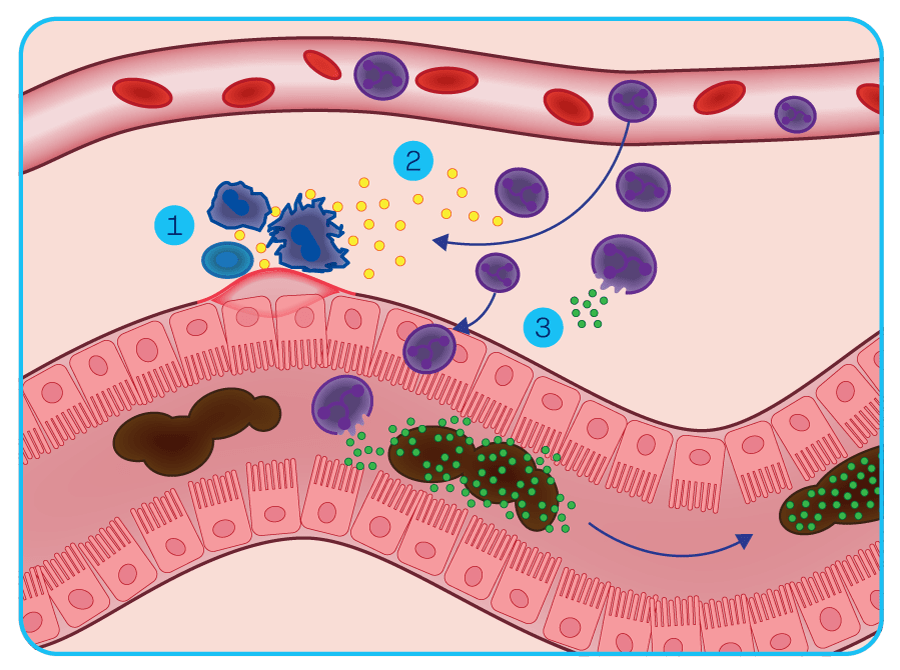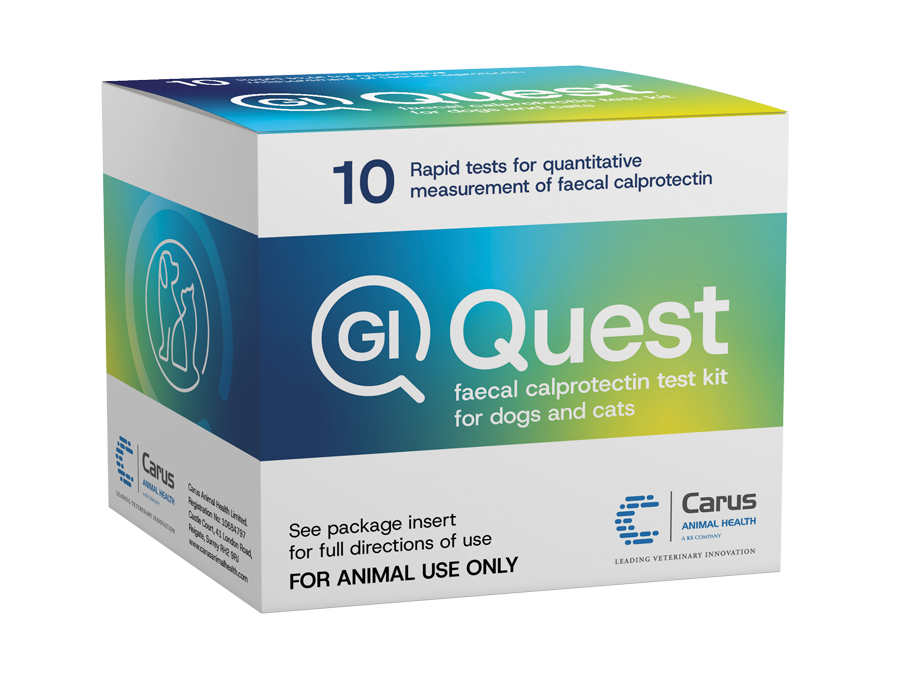
What is Faecal Calprotectin?
Faecal calprotectin is a sensitive biomarker of intestinal inflammation, reflecting neutrophilic activity in the GI mucosa. 7-9
It is released from neutrophils during intestinal inflammation and is highly stable in faeces, making it a suitable parameter for non-invasive testing.
When interpreted alongside clinical findings and other diagnostic tests, it can provide valuable insights into the presence and severity of intestinal inflammation.

- During GI inflammation, innate and adaptive immune responses are stimulated, resulting in an influx of phagocytic cells.7,9
- Release of inflammatory cytokines, which chemoattract neutrophils and aid their transepithelial migration into the gut lumen.7,9,10
- Neutrophil presence and disintegration leads to the release of calprotectin.7,9
A RELIABLE BIOMARKER
Faecal calprotectin is stable at room temperature for at least 3 days and resists degradation by faecal bacteria.
Discovered in the 1980s, faecal calprotectin is widely used in human medicine to support diagnosis and monitoring of inflammatory bowel disease (IBD).9 Its adoption in veterinary medicine is growing, with studies demonstrating its clinical relevance in dogs1,6,11,12 and cats. 6,13-15
When are faecal calprotectin concentrations elevated?
Any cause of intestinal inflammation will result in elevated faecal calprotectin concentrations, including:
- NSAID induced inflammation 5,6
- Food-responsive enteropathy 4,6
- Chronic inflammatory enteropathy 1-3, 6
- Infectious causes 13,16
- Carcinomas 6,17
Studies in veterinary medicine show that faecal calprotectin levels correlate with clinical severity and decrease in response to treatment.1
Studies in veterinary medicine show that faecal calprotectin levels correlate with clinical severity and decrease in response to effective treatment.1
View all study dataJoin the reveal-ution
Register to learn more about GIQuest and get support from our team.
Available to purchase with NVS, Covetrus and MWI

